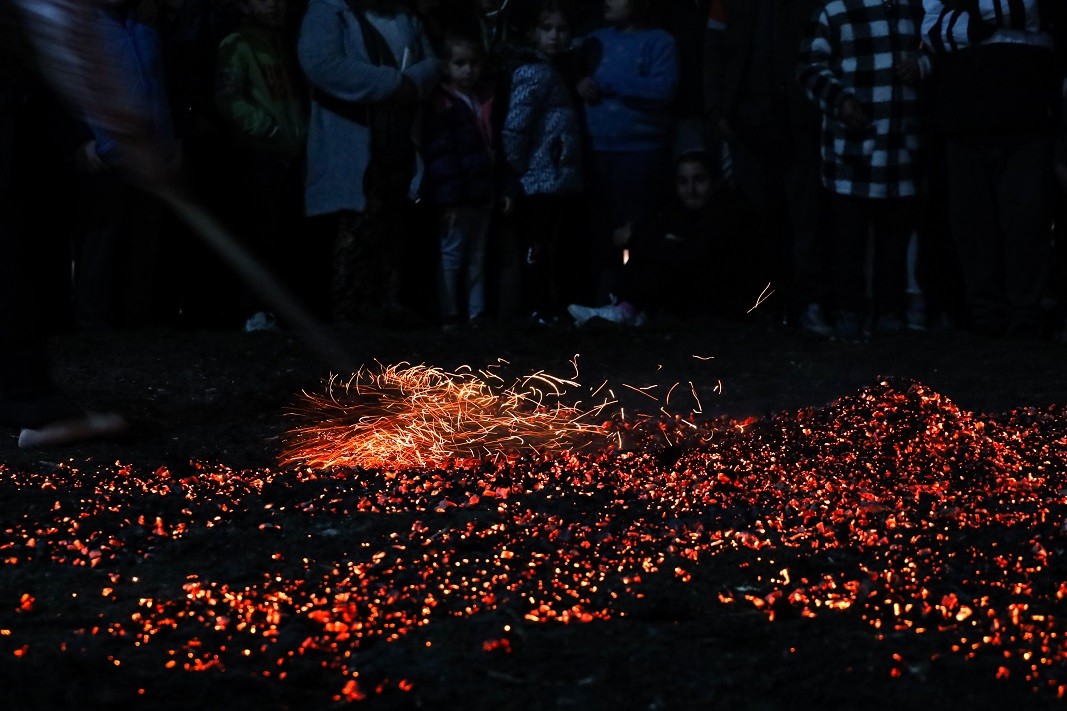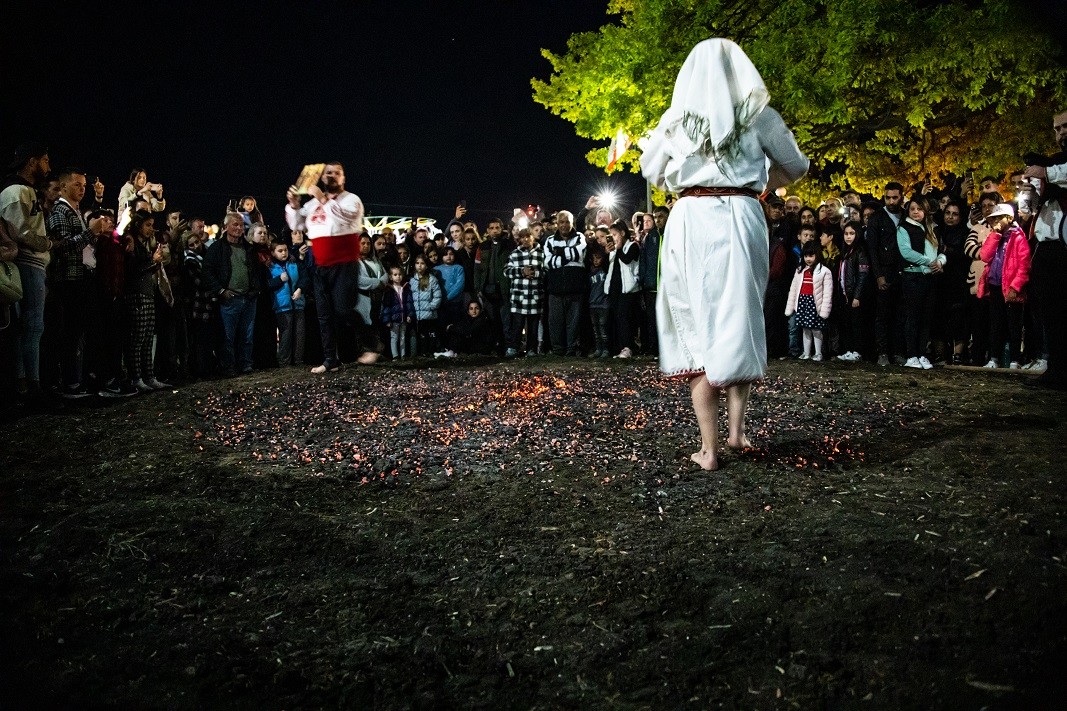Roman emperor Constantine the Great (AD 306 to 337) introduced the Christian religion as official in the Byzantine Empire. His mother, Helena, discovered the cross on which the Savior was crucified and built several monasteries in the Holy Land. The discovery of the Cross is considered the most important event in the history of Christendom, and Emperor Constantine and his mother Helena were canonized as saints.
In Bulgarian folk customs, the feast intertwines the traditions of Christianity with pagan traditions of dancing on live coals - the Nestinari dance. It is preserved to this day in some areas, in its original form. In many places it is also performed as a show for tourists.


Father Genadiy Martinov is a Bessarabian Bulgarian, born in the village of Devetliy, Odessa province (Ukraine). Two centuries ago, his family lived in Eastern Thrace, near Edirne, but after the end of the Russo-Turkish War (1828–1829), during a period..
An intact grave of a young woman dating to the beginning of the 2nd century AD has been discovered by archaeologists near the village of Kapitan Petko Voivoda, Topolovgrad Municipality announced. The team that made the discovery is led by Daniela Agre..
On October 14, the Bulgarian Orthodox church pays homage to Saint Paraskeva, also called St. Petka of Tarnovo and the day is known in Bulgaria as "Petkovden". Saint Petka was born in the 11th century in the town of Epibat, on the Sea of..

+359 2 9336 661
